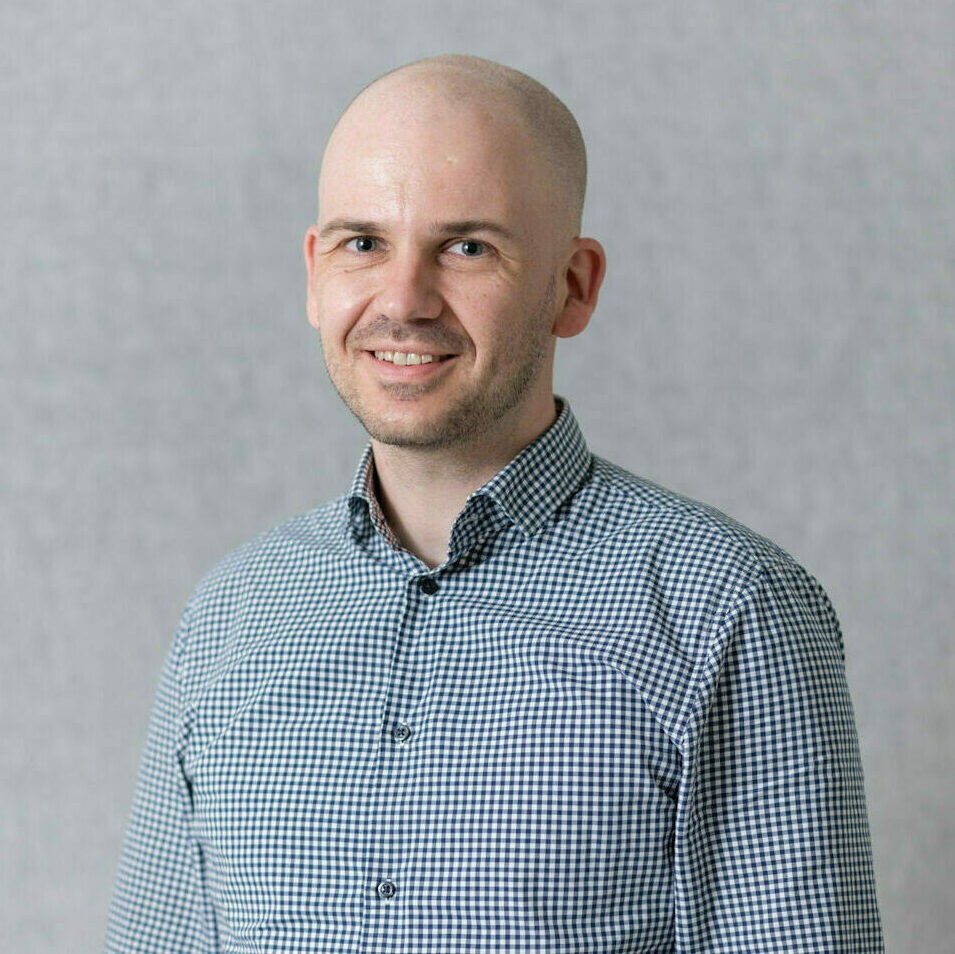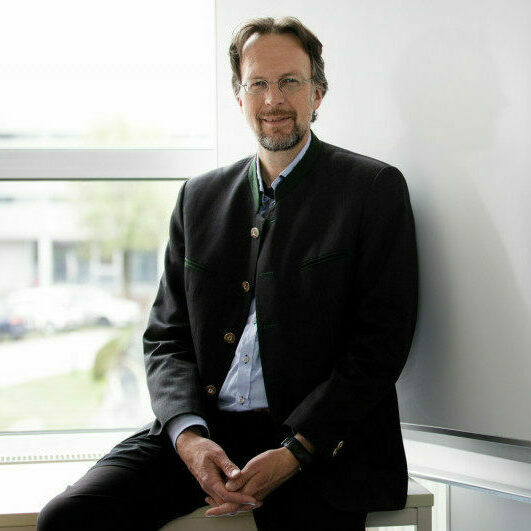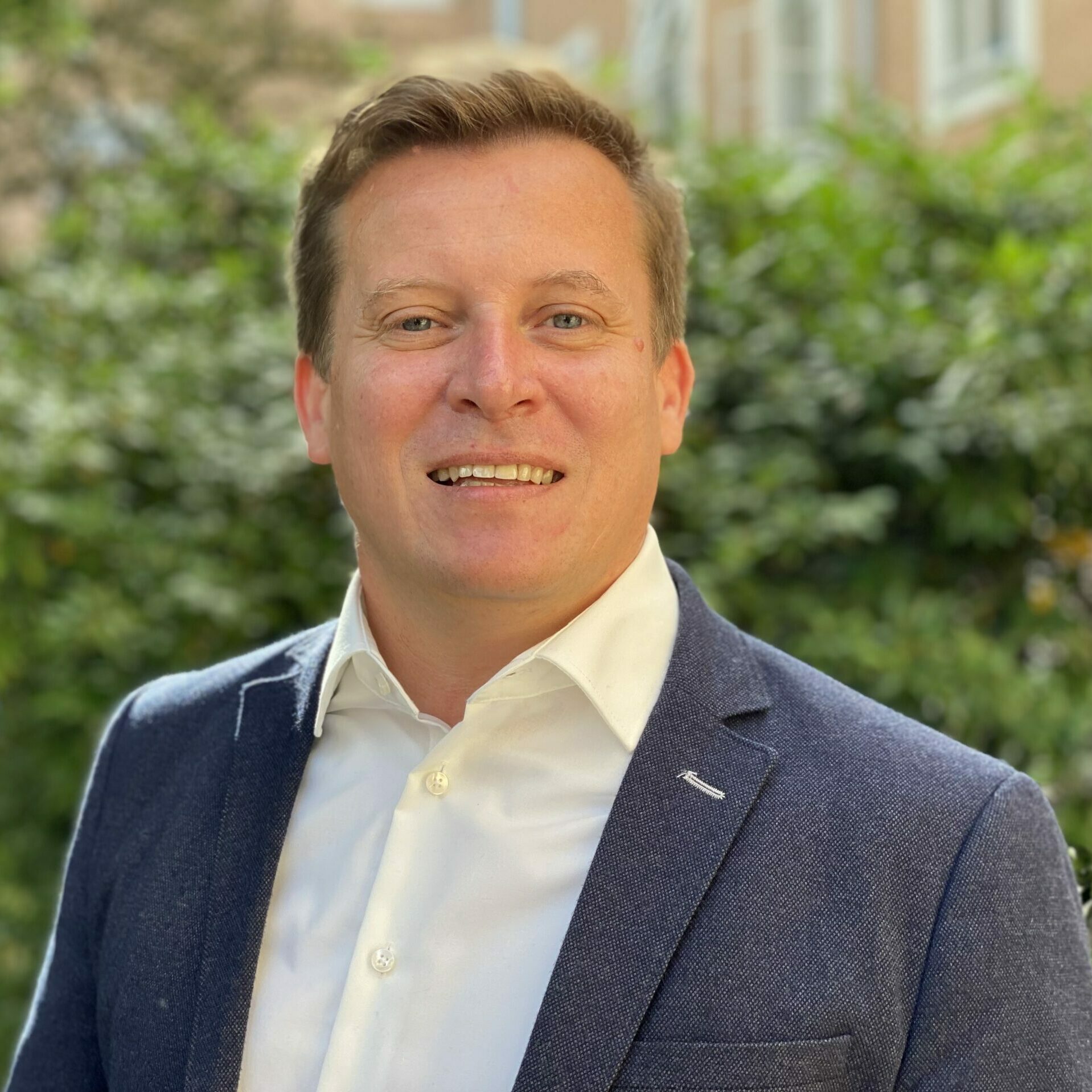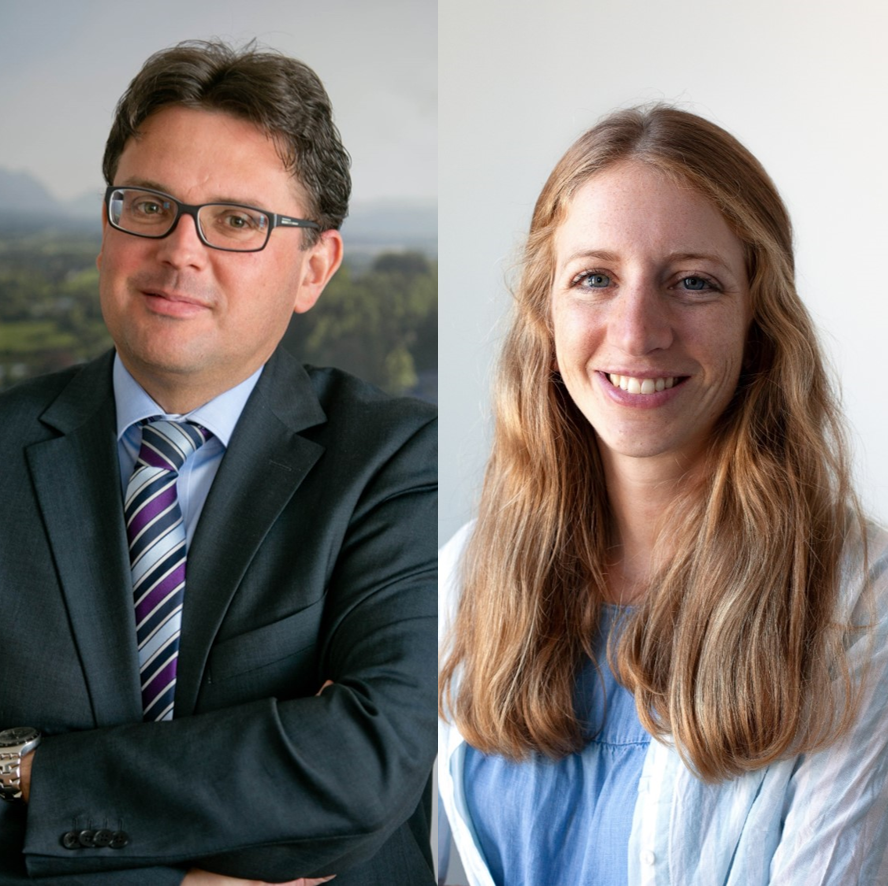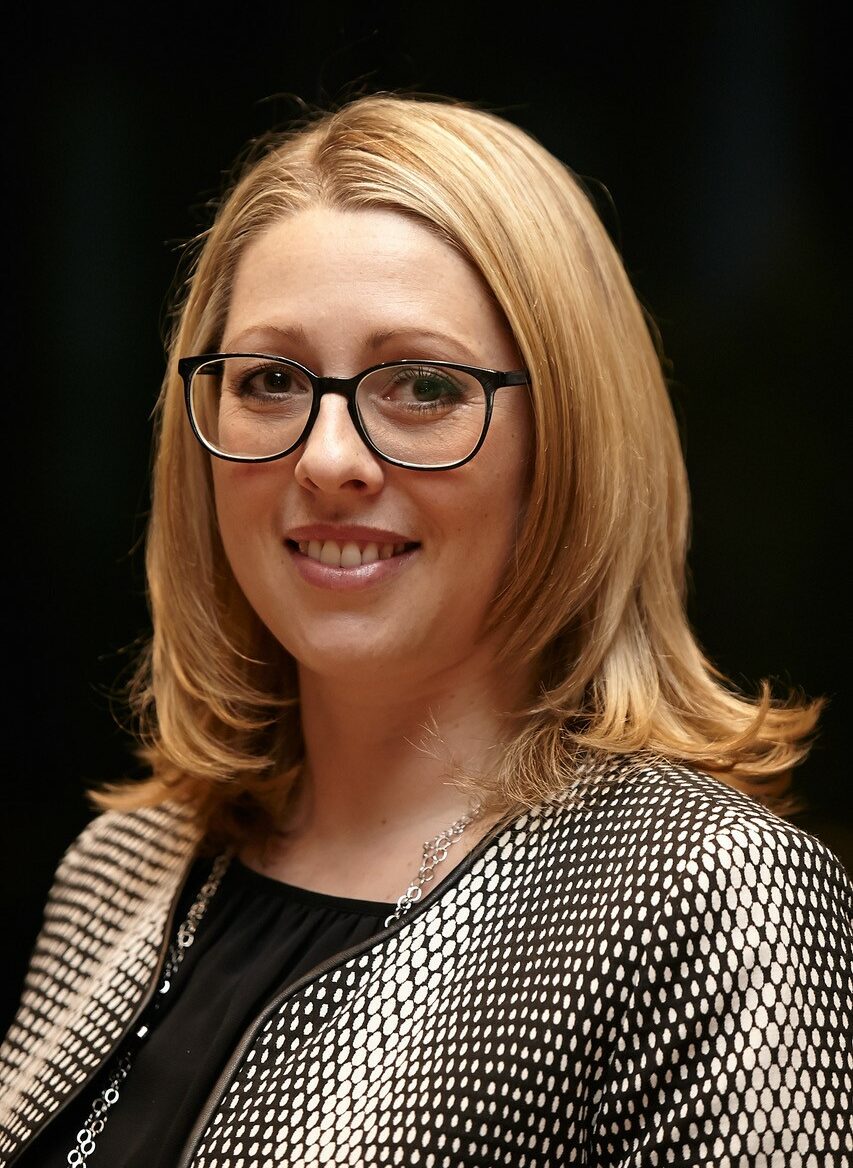Meet the Ludwig Boltzmann Institute for Digital Health and Prevention and its Partners
Abstracts and Speakers, Monday 28 Oct 2022
3 years LBI for Digital Health and Prevention – An Introduction
Speakers:
- Prim. Univ.-Prof. Dr. Dr. Josef Niebauer, MBA
Scientific Director | Ludwig Boltzmann Institute for Digital Health and Prevention - Dr.-Ing. Jan David Smeddinck, BSc, MSc
Co-Director | Ludwig Boltzmann Institute for Digital Health and Prevention
Abstract:
The Ludwig Boltzmann Institute for Digital Health and Prevention was established in Salzburg, Austria, in September 2019. Located at the University Institute for Sports Medicine at University Hospital Salzburg, an interdisciplinary and international research team works on a mission to develop novel digital health interventions to support rehabilitation and prevention. We currently focus on fostering sustainable heart-healthy physical activity with digital tools including personalized features, such as just-in-time adaptive interventions, continuous observation through wearable sensing devices, as well as data homogenization and analysis.
Making use of examples and highlights of the developments from the first years of the institute, we illustrate how our work covers the full life-cycle of digital health intervention development, from stakeholder-centered ideation, over implementations and early formative evaluations to running ambitious studies including measures of physiological and medical outcomes. We will also provide examples of how the Ludwig Boltzmann Institute for Digital Health and Prevention integrates Open Innovation in Science approaches across nearly all activities in order to assure well-guided human-centric and impact-oriented research and development.
Speaker Bios:
- Josef Niebauer is a specialist in Internal Medicine, Cardiology, Sports Medicine, Sports Cardiology, Rehabilitation. He is Chief and University Chair of the Institute of Sports Medicine, Prevention and Rehabilitation, Paracelsus Medical University, Salzburg, Austria, Director of our LBI-DHP, and Director of the Rehab Center Salzburg. He is also the President of the Austrian Association of Prevention and Rehabilitation, Past-President of the Austrian Society of Sports Medicine and Prevention as well as Past-Chair of the Sections of Sports Cardiology of the Austrian, German and European Societies of Cardiology. He received his medical training in Mainz, Germany; Vienna, Austria; Dijon, France; Tarabuco, Bolivia; Dumaguete, Philippines; Chicago, Il., USA; Sydney, NSW, Australia; his specialist training at the Universities of Heidelberg, Germany; Stanford University, CA, USA; Royal Brompton Hospital, Imperial College, University of London, UK; Leipzig, Germany; and training for his MBA at the Universities of Salzburg, Toronto, Canada; Marburg and Trier, Germany. His research interests lie in the fields of exercise training in cardiovascular, pulmonary and metabolic diseases; effect on endothelial function, oxidative stress, metabolism, muscular adaptation, and pre-participation examination in athletes. He is author of >350 manuscripts in national and international journals, and editor of 5 books.
- Building on his background in interaction design, human computation, serious games, web technologies, adaptive systems, machine learning, and visual effects, Jan Smeddinck is a human-computer interaction (HCI) researcher and practitioner with a passion for digital health. He is the current scientific Co-Director and Principal Investigator for the programme lines in digital health interventions and data analytics at the Ludwig Boltzmann Institute for Digital Health and Prevention.
Institute Partner Perspectives
Speakers:
- Univ.-Prof. Dr. Arne Bathke
Dean of the Faculty of Digital and Analytical Sciences, Paris-Lodron-Universität Salzburg
Professor at the Department of Artificial Intelligence and Human Interfaces, Universität Salzburg - Univ.-Doz. Dr. Siegfried Reich
Managing Director and Head of Research | Salzburg Research
- Dr. Alexander Kollmann
Head of eHealth and Telemedicine | University Hospital Salzburg (SALK)
eHealth Representative | State of Salzburg - Mag. Walter Haas – Lisa Schiefer, MA, PhD
Managing Director – Manager Life Sciences Ecosystem | Innovation Salzburg GmbH
Abstract:
The LBI-DHP is supported through an active network of partner organizations. While we are linked with many organizations through various project-specific collaborations, the institute is actively supported through the following core partners: the University Hospital Salzburg, with the University Institute for Preventive and Rehabilitative Sports Medicine in the lead, the Salzburg University of Applied Sciences, the Paris-Lodron University Salzburg, the Salzburg Research Forschungsgesellschaft, the Austrian Institute of Technology, the Paracelsus Medical Private University, and the State of Salzburg.
Three core partner organizations will present their work and contributions relating to the LBI-DHP, illustrating how continuous and closely-integrated interactions between the involved institutions serve to strengthen a local network that positions Salzburg as a relevant digital health hub with a unique potential for developing, testing and integrating digital health research and solutions for direct local impact, serving as a model region.
Speaker Bios:
- Arne Bathke was born Born in Hamburg, grew up in Northern Germany and Norway. Studied mathematics in Göttingen, spent study time abroad in Italy and the USA, and obtained his doctoral degree in 2000. Afterwards, has worked for 11 years in the United States as statistics professor at the University of Kentucky, where he was also inaugural director of the Applied Statistics Laboratory, a comprehensive statistics consulting facility on campus.
His research deals with developing and evaluating new statistical methods, and he has given numerous invited talks, lectures and workshops on five continents. On the other hand, he is also interested in the application and improvement of statistical procedures in interdisciplinary cooperations with colleagues from other fields, from medicine and biology to economics.
About half of his more than 100 publications in international journals result from such cooperation projects.
Among other awards, Arne Bathke was named “Henry Clay Ambassador” by the Mayor of Lexington (Kentucky) for his civil engagement, and he has received two university-wide awards for excellence in teaching and advising. Furthermore, he has been President of the International Biometric Society – Region Österreich-Schweiz (IBS-ROeS), is on the board of the Austrian Statistical Association (ÖSG), Editor-in-Chief of Biometrical Journal, the flagship journal of the International Biometric Society Regions Germany, Austria-Switzerland, and Italy, as well as on the editorial board of two other international statistics journals (International Journal of Biostatistics, Journal of the American Statistical Association). - Siegfried Reich is managing director and head of research at Salzburg Research as well as senior researcher working in the area of hypermedia middleware and Web Engineering.
He received his M.Sc. in applied computer science from the University of Linz (1992) and a Ph.D. in computer science and economics from the University of Vienna (1995). From 1996 – 1999 he joined the Multimedia Research Group at Southampton (UK) as a post-doc and lecturer mainly working on interoperability of distributed open hypermedia systems and the application of software agents for navigating information spaces. From 2000 to 2003 he was head of SunTREC Salzburg, a research centre initiated by Sun Microsystems and Salzburg Research in the area of middleware frameworks for Web-based applications, including mobile applications using the Java platform. Since 2003 he is head of research and director of Salzburg Research, the research institute of the county of Salzburg.
Sigi Reich has published over 80 international papers and has served as referee for many journals, conferences and workshops. He has been involved in several European and national research projects. He is a member of ACM, IEEE and the Austrian Computer Society OCG. - Alexander Kollmann received a MSc and a PhD degree in electrical- and biomedical engineering from the Graz University of Technology in 2003 and 2008, respectively. His areas of expertise are in eHealth project- and product management, the design of national eHealth- and telemedicine infrastructures, and electronic health records in general. Alexander has been the Head of Project- and Innovation Management at the ELGA GmbH in the implementation of Austria’s national eHealth infrastructure (ELGA) and worked for Siemens Healthineers as a global expert for eHealth solutions. Since 2020 Alexander leads the department of eHealth & Telemedicine at SALK, represents the state of Salzburg in national eHealth committees and is a board member of IHE-Austria.
- Lisa Schiefer is project manager for Life Sciences within the Innovation and Science Ecosystem at Innovation Salzburg, Salzburg’s innovation centre and the provincial development agency. She holds a PhD in Medical Sciences from Paracelsus Medical University and a Master’s degree in health-care management from FH Oberösterreich. Innovation Salzburg supports research in companies, universities, and research institutions.
Digital Medicine and Therapeutics, a Pharma Perspective
Speaker:
- Dr. Yannis Pandis
Director, Digital Health Technology Partnerships |Johnson & Johnson Innovation – Oncology Therapeutic Area
Business Technology Leader | Johnson & Johnson Technology
Abstract:
The talk will provide insights into how the modern pharma industry approaches digital health, focusing on evidence based solutions (Digital Medicine) and “around the pill” digital therapeutics along the lines of selected applied project examples.
Speaker Bio:
- Ioannis Pandis received a Ph.D. degree in Biological Chemistry from the BSRC ”Al. Fleming” Institute in Athens. He has been working as a Senior Manager at Johnson & Johnson. He is in the Discovery Science Group working on the European Innovative Medicine Initiative (IMI) eTRIKs and IDEA-FAST projects, contributing to the development of translational information and knowledge management systems as well as digital endpoints research. His personal interest is the development of bioinformatic applications enabling applied biomedical research, with a particular focus on genome regulation analysis.
Implementation of Digital Applications and Tools in the Austrian Health System
Speaker:
- Dr. Alexander Degelsegger-Márquez
Head of Department | International Affairs, Policy, Evaluation and Digitalisation | Gesundheit Österreich GmbH
Abstract:
Digitalisation is both an opportunity and a challenge for public health systems around the world. Complex regulatory environments and stakeholder constellations meet dynamic innovation cycles and market entrants. The task for a yet-to-be-defined health innovation policy is not only to nurture an environment where ideas can be developed into prototypes, but to establish mechanisms of selection and scaling. This is particularly important in establishing effective and public value-oriented interfaces with private sector innovators. Recent initiatives in the EU environment, for instance regarding digital health applications, provide signposts for possible next steps in the Austrian environment.
Speaker Bio:
- Alexander Degelsegger-Márquez is head of the Department for International Affairs, Policy, Evaluation and Digitalisation at Gesundheit Österreich GmbH (GÖG), the Austrian National Public Health Institute. In this role, he advises national stakeholders in policy-making related to digital health and health data infrastructures. He also carries out research and policy advisory work in a number of international projects on digital health and health data. From March to June 2020, he was a seconded expert to the crisis management team at the Austrian Federal Ministry for Social Affairs, Health, Care and Consumer Protection. Before joining GÖG at the beginning of 2019, Alexander was Head of Department for “Research Policy and Development” at the Centre for Social Innovation in Vienna. Alexander has a background in political science and holds a PhD from the University of Vienna’s Science and Technology Studies department. He currently also lectures on big data in health at the University of Vienna’s political science department.
Open Innovation in Science: Role and Value in the Health Sciences
Speaker:
- Prof. Dr. Marion Poetz
Associate Professor | Copenhagen Business School – Department of Strategy & Innovation and Scientific Director | LBG Open Innovation in Science Center
Abstract:
In her talk, Marion Poetz introduces the concept of Open Innovation in Science and discusses how openness and collaboration affect productivity and impact of scientific research in the health sciences.
Speaker Bio:
- Marion Poetz is Associate Professor of Innovation Management at the Department of Strategy and Innovation at Copenhagen Business School and Scientific Director of the LBG Open Innovation in Science Center at Ludwig Boltzmann Gesellschaft. Inspired by phenomena linked to Open Innovation and Open Science, Marion’s research focuses on strategy, management, and organization of open and collaborative knowledge production. In recent projects, she studies individual- and organizational-level drivers of applying open and collaborative practices to science and their effects on the productivity and impact of scientific research and she investigates the interplay of cooperation and competition in crowd-based problem solving processes. As a principal investigator in two large-scale research projects, she currently manages research groups around these topics in Denmark and Austria. Marion’s work has been published in leading international journals such as Management Science, Research Policy, or Harvard Business Review, featured in various media such as Forbes or Inc. Magazine and received numerous awards. Marion has been an academic advisor, board member and consultant to organizations from various industries including national and international firms and policy-making institutions. She has co-founded several institutions such as the Institute for Innovation Capability Building and created the Lab for Open Innovation in Science (LOIS).

